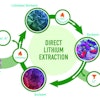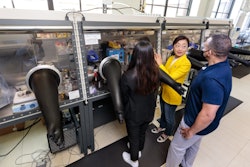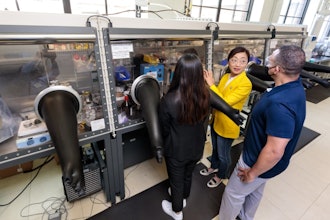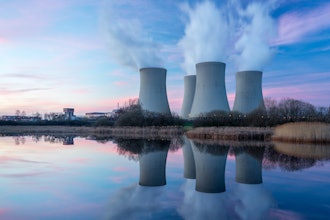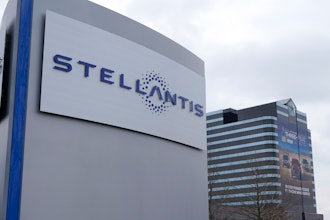If you wanted to clear a room full of nervous mothers of small children you could to it by yelling one word: “Chemicals!”
Jessica Alba — famous for her roles in “Fantastic Four” and “Little Fockers” — knows this, and has built a booming business around modern, hand-wringing parents who worry about the prevalence of chemicals in everything, from toys to food.
The company she co-founded, called The Honest Co., launched in 2012 selling personal care and home products for little ones like diapers, bath products, laundry detergent and more — all made with nontoxic ingredients. The company now touts more than a 100 products and recently signaled they’d be adding a beauty line soon.
The success of The Honest Co. has paid off royally — within two years the company’s revenue was near $150 million and this year crossed the $1 billion mark — and made Alba a media darling. Alba can be seen on this month’s cover of Forbes with the headline “America’s Richest Self-Made Women.”
Alba has also used her success to try to influence debates around chemical safety and regulation.
Last week she was on Capitol Hill in Washington, D.C., meeting with Senators such as Charles Schumer (D-NY) and Barbara Boxer (D-CA) to discuss the two competing reform bills to the 1976 Toxic Substances Control Act, and suggesting that neither option goes far enough in regulating dangerous chemicals.
Weeks ago she also announced that she was funding research into whether or not there’s a link between common chemicals and autism. The study will measure the impact of exposure to household chemicals during fetal development by sawing into the teeth of kids diagnosed with autism and comparing them to children without a developmental disorder.
While she is generally and rightfully applauded for her foray into the debates around chemical safety, it also seems like some fear mongering is at work.
A major cynic would read all this and say that Alba is stoking consumers’ anxiety about chemicals to hurt her competitors and boost her own company’s success. I’m not quite that pessimistic. But I do see a problem with some of the alarmist rhetoric Alba has been using.
Here is a quote from a recent talk she gave on her success, where she explained why she’s raised the red flag about chemicals: “My mother had cervical cancer at 23. My grandmother died of stomach cancer. I grew up with people being ill. This has got to stop. My friends in their 20s shouldn’t have a hard time getting pregnant.”
So what Alba seems to be implying is that there must be a link between cancer, infertility and “people being ill” with all the chemicals we put in household goods. Basically, people she knows have been sick so it must be related to chemicals. This sounds pretty scary — and not exactly the voice of careful reason in a country currently going through a major reckoning with chemical regulations.
But let’s examine the notion for a moment and look at the link between chemicals and cancer.
To be sure, chemicals including asbestos and glyphosate (which is used in pesticides such as Roundup) have been deemed carcinogens — but not for the cancers she mentions. And while environmental factors are considered to play a role in increasing the odds of getting many cancers, there are so many other factors at play — genetics, random gene mutations, etc. — that passing it off as a problem related to “chemicals” is irresponsible.
In fact, how often do you hear of chemical exposure causing cervical cancer? Probably never because the only chemical linked to cervical cancer — tetrachloroethylene — only affects about the 1 percent of the population who are exposed to it through occupational dry cleaning or metal degreasing.
This isn’t to say chemicals are never dangerous. The truth is there are always new studies revealing the harm of certain chemicals.
But sometimes those studies don’t take into account the level of exposure needed to be harmed by those chemicals. This, for example, has frequently been the case with bisphenol A (BPA), the plastics additive often cited as a potential culprit of infertility — one of the other chemical woes she mentions.
So if you don’t read between the headlines, chemicals do sound like the bogeyman. And unfortunately Alba is often just adding to that alarmist noise.
Here’s another frequently used quote of Alba’s: “There are 80,000 chemicals in consumer products — chemicals that frankly haven’t been tested.” The company’s “Honestly Free Guarantee” also says “We believe the products people use should be safe and non-toxic (surprisingly, many companies don’t!)”
Or read it this way: 80,000 chemicals haven’t been tested, so they must be dangerous. Again, it’s a pretty simple worldview that plays well into the company’s marketing, but doesn’t quite live up to reality.
Plenty of chemicals are hazardous and I think everyone working on regulation reform agrees that the process needs to be strengthened in the U.S. But to suggest we’re living in a wild west of chemical anarchy — when several federal agencies like the EPA test and study chemicals — isn’t completely accurate.
Plus, there’s this other pesky fact: Plenty of chemicals we encounter every day are safe and they make our lives better.
Don’t believe me? Ask Alba herself. The Honest Co. still uses chemicals in their products — chemicals like polyolefin, a popular plastic used to help give the company’s diapers a comfy waistband. Other chemicals like phenoxyethenol, methylisothiazolinone and polyurethane are also in The Honest Co.’s products.
Why? Because they work and they’re safe.
I’m all about being chemically conscious — but not chemically paranoid.
I also salute Alba’s success — I even have some Honest Co. products at home!
— and I think consumers should be more informed about what’s in the products they use.
But just because an ingredient has a long word you can’t pronounce, that doesn’t mean it’s going to kill you. And just because Alba’s company has been successful selling pricey products sans chemicals, it doesn’t mean she needs to freak out moms to make a buck.


